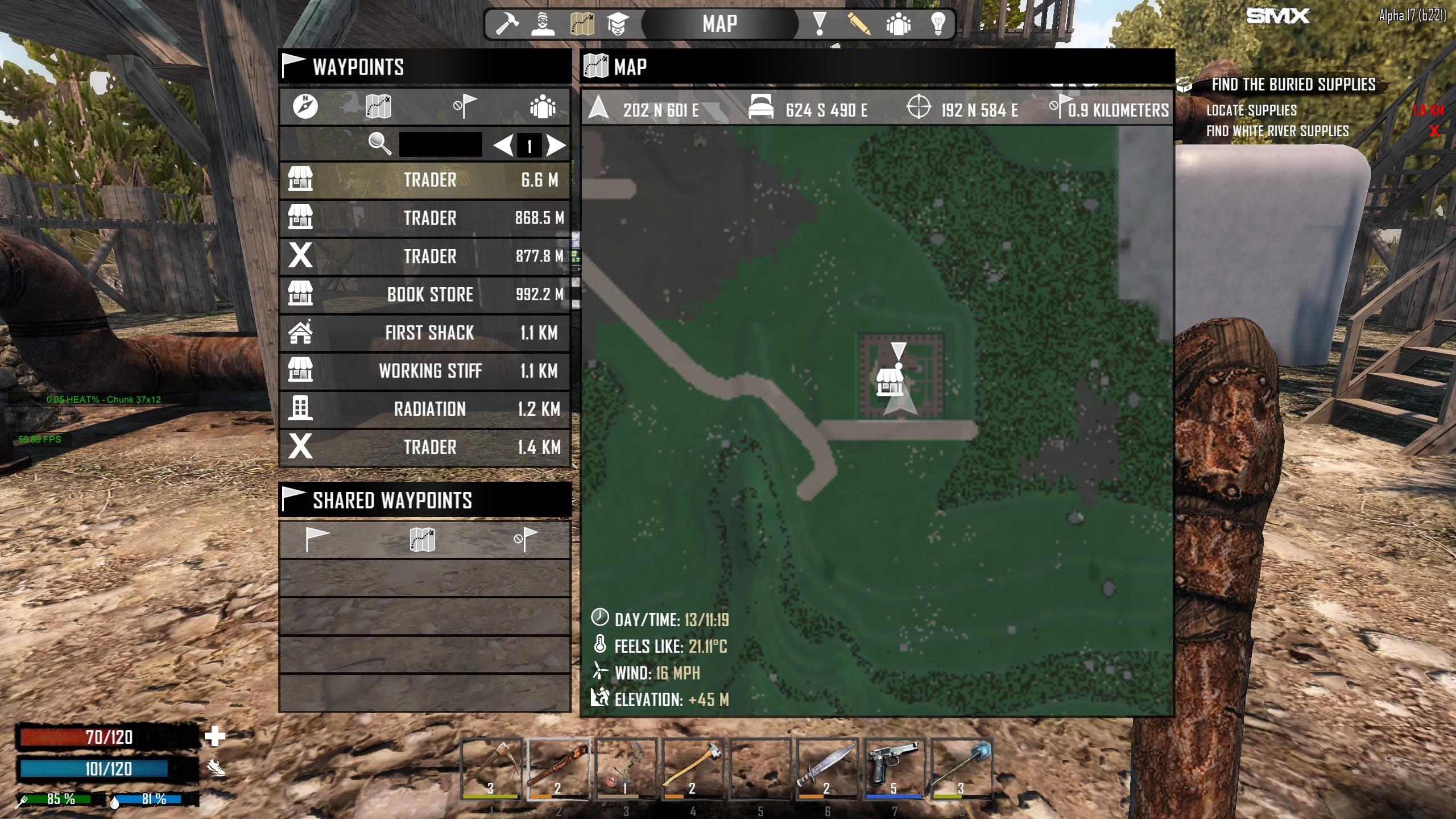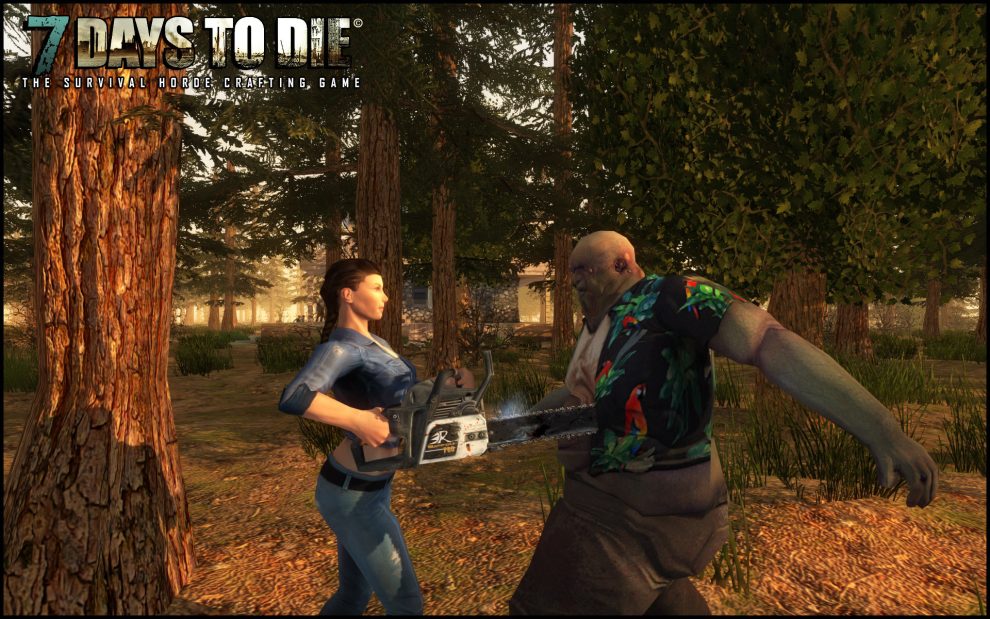Ever wandered into the unforgiving world of 7 Days to Die only to find your map selection overflowing with past adventures? While exploring the procedurally generated landscapes is a core part of the game’s appeal, cluttered menus can become a nuisance. Fear not, fellow survivor! This comprehensive guide will equip you with the knowledge to delete unwanted maps in 7 Days to Die, ensuring your menu remains streamlined and post-apocalyptic chic.

Do I Have to Erase Maps in 7 Days to Die?
Completely not! Erasing maps in 7 Days to Die is entirely optional. If you have the storage space and enjoy revisiting past experiences, there’s no harm in keeping them. However, there are several reasons why you might consider cleansing your map selection:
Menu Clutter:
A bloated map list can make navigating the game’s menus awkward. Deleting unused maps streamlines the process of selecting your next no-man’s land adventure.
Save File Management:
Each generated world in 7 Days to Die creates saved data. While not individually significant, a multitude of maps can contribute to saving file bloat. Deleting unused maps can help optimize file size.
Fresh Starts:
Sometimes, you crave a different experience in no man’s land. Wiping the slate clean by deleting old maps clears the way for a completely new playthrough.
How to Erase Maps in 7 Days to Die (Using the In-Game Launcher)
The good news is that 7 Days to Die offers a built-in tool for deleting unwanted maps. Here’s how to use it:
- Launch the Game: Fire up 7 Days to Die through your preferred method (Steam library, shortcut, etc.).
- Access the Launcher: Upon launching, you’ll often be presented with a splash screen. Look for an option like “Show Game Launcher” or a checkbox labeled “Always ask to show launcher.” Enabling this option ensures you see the launcher every time you launch the game.
- Navigate to the Tools Tab: Once the launcher appears, navigate to the “Tools” tab. This tab typically houses various utility functions for managing your 7 Days to Die experience.
- Clean Game Data: Within the “Tools” tab, locate a button labeled “Clean Game Data” or similar. Clicking this button opens a window with various checkboxes.
- Target the Maps: Ensure only the checkbox next to “Generated Random Worlds” is selected. This ensures that only your player-generated maps are targeted for deletion. The launcher will leave the pre-defined maps, like Navezgane, untouched.
- Initiate the Cleanse: Once you’ve confirmed your selection, click the “Clean” button. The launcher will proceed to delete your unwanted maps.
Congratulations! You’ve successfully deleted unwanted maps using the in-game launcher.

Manually Deleting Maps (For Advanced Users)
For experienced players who are comfortable navigating file structures, here’s the manual deletion approach:
- Locate the Save Folder: The location of your save files will depend on your operating system. Here’s a general guide:
- Windows:
C:\Users\Username\AppData\Roaming\7DaysToDie\GeneratedWorlds - Mac:
~/Library/Application Support/7DaysToDie/Saves - Linux:
~/.config/7DaysToDie/Saves(Note: The “~” symbol denotes your home directory.)
- Windows:
- Identify Target Folders: Within the “Generated Worlds” folder, you’ll find individual folders for each of your generated maps. These folders often have cryptic names, but their modification date can provide clues if needed.
- Delete with Caution: Drag and drop the unwanted map folders to your recycle bin (Windows) or trash can (Mac/Linux). Be absolutely certain you’re deleting the correct folders to avoid inadvertently wiping important save data.Remember: Manually deleting maps carries a higher risk of errors. If you’re unsure, use the in-game launcher method for a safer approach.
Frequently Asked Questions (FAQs) About Deleting Maps in 7 Days to Die
Q: Will deleting a map also erase my progress in that world?
A: Absolutely not! Deleting a map only removes it from the list of available worlds. Your saved data for that particular map remains untouched. You can always access the deleted world again by navigating to the save file location (mentioned earlier) and copying the corresponding folder back into the “Generated Worlds” directory. Don’t panic! Here are your options for potentially recovering a mistakenly deleted map:
- Recycle Bin/Trash Can: If you’re on Windows or Mac, the deleted map folder might still reside in your recycle bin or trash can, respectively. Check these locations first and restore the folder if found.
- Backup Saves: If you have a habit of backing up your save files regularly (highly recommended!), locate the backup containing the affected map and restore it to the “Generated Worlds” directory.
- Manual Recovery (Advanced): This method requires some technical know-how. Data recovery software can potentially retrieve deleted files, but success isn’t guaranteed and depends on how much data has been overwritten since the deletion. Only attempt this approach if you’re comfortable with data recovery tools and understand the risks involved.
Important Note: Recovering deleted maps isn’t always straightforward. Having a backup system in place is the most reliable way to protect your progress.
Additional Considerations When Deleting Maps in 7 Days to Die
- Cloud Saves: If you use cloud storage for your save files (e.g., Steam Cloud), ensure you’re not inadvertently syncing deletions across devices. Double-check your cloud storage settings, if necessary.
- Server Administration: If you’re managing a 7 Days to Die server, the process for deleting maps may differ. Consult your server management documentation for specific information.
- Mods: Using mods can introduce complexities. Certain mods may create additional map-related data. If you’re heavily modded, consult the mod documentation or community forums for guidance on deleting maps while maintaining mod functionality.
Conclusion: A Clean Slate for Your No Man’s Land Adventures
By following the steps outlined above, you’re now equipped to effectively manage your maps in 7 Days to Die. Use the in-game launcher for a secure and user-friendly approach, or for experienced users, the manual deletion method offers more granular control. Remember, maintaining a streamlined map list improves your menu navigation and can free up valuable file space. With a clean slate and a thirst for survival, you’re ready to embark on countless new adventures in the thrilling world of 7 Days to Die!
















Add Comment